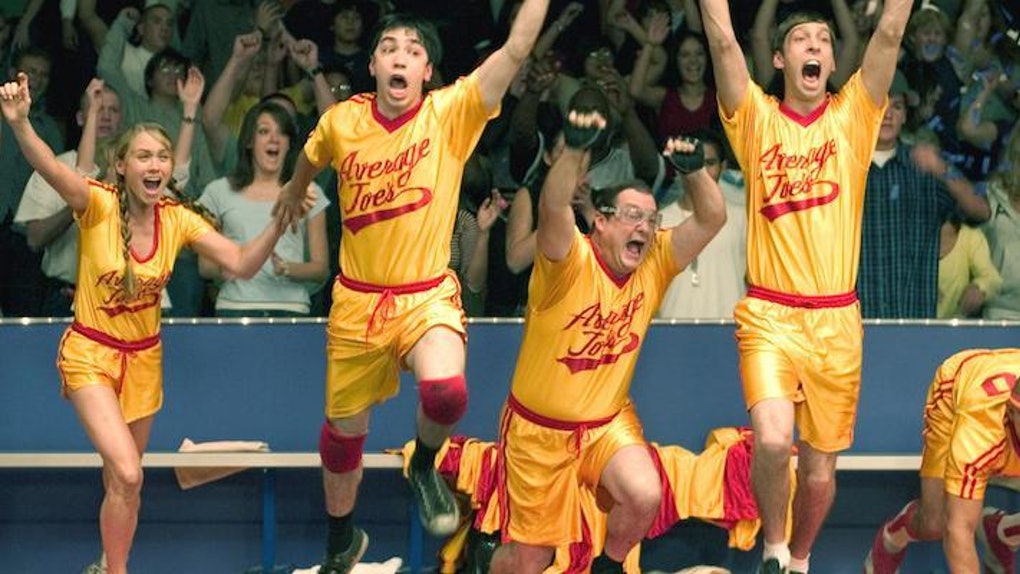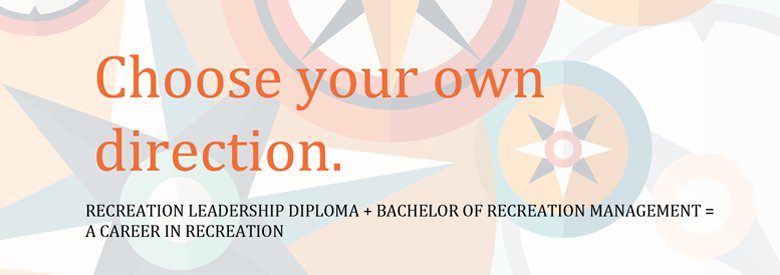Jan 30, 2020
By Emma Courtney, Instructional Assistant

This past weekend I had a wonderful opportunity to attend a conference where post secondary institutes gathered to discuss and connect about recreation and wellbeing offered on campuses across North America. At this conference I attended discussions and presentations about the links between physical activity and academic success, the importance of inclusion and equity training in recreation environments, issues and trends that different universities and colleges are facing, and so much more. It was so exciting to be surrounded in curious and committed recreation professionals working to improve the wellbeing of their campus culture.
A presentation that I was most looking forward to was titled: Fun For Who? Women’s Experience in Co-Rec Sports. This presentation promised to discuss research findings of how women experience co-rec sports on campus. In other words, sports leagues that require both men and women on the team in order to participate. Upon arrival to this presentation, I was fascinated to see that two men were delivering a presentation addressing how women experience something. I set my reservations aside and settled in to hear what they had to say.
These presenters had embarked on a study, inspired by this article (well worth a read, please go check it out) to explore why there were such lower turn outs of women then there were of men in both recreational and competitive co-rec sports on campus. They embarked a fascinating research journey, leading focus groups, interviewing women participants, and gathering data about what women’s perspectives were on co-rec sports. Their findings were that men’s behaviour had the greatest impact on women’s experiences in co-rec sports. Specifically, male teammate’s behaviour had the greatest impact on women’s experiences and participation levels. I’m sure if you’ve ever played on a co-rec team, you may have an idea about what types of behaviour would deter women from choosing to participate or engage in co-rec sports. The study identified that it was small acts of micro-aggression, both within a team and from an opposing team that were affecting women’s desire to participate so greatly. A quote from one of the students they interviewed gives a great example of what this experience looks and feels like:
“I know how the game works; I don’t need someone to take a throw in for me every time. That feeling where I’d go out there and I’m simply a body. I actually want to play too.”
So often in co-rec sports, women are asked to join simply because the team needs to meet the minimum requirement of a mixed-gendered team, and not actually because the team wants a woman to play. Women would talk about how opposing teams were more likely to ‘go easy on them’ or not take them as seriously. How their own team would often make them feel like a ‘token female’ and not a true contributor to the team. I’ve been on co-rec teams, and I can certainly relate to this feeling.
Then the speakers shifted to how they approached a solution to this identified problem. Their studies had shown them that micro-aggression increases as the competition increases, and (not surprisingly) as competition increases, more and more women choose not to participate. So as a solution to this problem, the recreation programmers decided that they would create a more inclusive environment for women by creating a ‘just for fun’ league, and eliminating the competition entirely. So they introduced this league, giving students three leagues to register in: competitive, recreational, and just for fun. To educate students on what leagues to join, they created marketing campaigns in the form of flow charts: Do you want to play against skilled players? Yes --> you should join a competitive team. No --> do players on your team compete hard even though they’re not the most skilled on the team? Yes --> you should join the competitive league. No --> is winning the game more important to your team then having fun? Yes --> you should join the competitive league. No --> Is it important your league includes referees and playoffs? Yes --> you should join the recreational league. No --> you should play on the just for fun league.
The findings of this research paper resulted direct action to create a safe space for women. This was so well intended and important. But, this action is supporting systemic sexism in recreation and although the greatest intention was had, the impact is exactly why we’re still fighting sexism in 2020. It’s great that we help people select the correct league based on their competitive drive, buts shouldn't we be striving for all leagues to be a place where everyone is encouraged to play their best and be supported by their team mates and competitors? It was clearly identified that the cause of women not wanting to participate in co-rec sports was the actions of men. I do believe that male teammates are well intended and don’t often know the ill effects of their actions. But, what a great opportunity for a teachable moment! Instead of pouring resources into creating a marketing campaign that teaches students about what league they should join, why not launch a marketing campaign about how to identify and address micro-aggression on your team and in your league? Oh right, because that’s uncomfortable and will likely ruffle a few feathers. After all, these men don’t mean to hurt women’s feelings, right? So we’d better welcome women into a safe, ‘just for fun’ league, and if they want to play in the competitive leagues then they should toughen up, because, well, boys will be boys!
If we want to see systemic change in our sports and rec communities, then we’d better start getting comfortable with being uncomfortable. Education is key here, teaching participants what micro-aggression is deterring women from the field/arena/court is integral if we want to see real change in sports and rec culture. We cannot beat around the bush by creating new spaces for women to feel safe in (don’t get me wrong, women’s only gym time is SUPER important while we work on systemic behavioural changes in our culture) instead of making the spaces that already exist safe and welcoming for women (and all marginalized communities).
When I offered this up as an alternative to their solution of the ‘just for fun’ league, the feedback I received was that behavioural issues were so daunting and massive in society, that what impact was one small rec facility on one university campus going to have? Was it really their responsibility to address this? Shouldn’t they focus on creating safe spaces for women and taking these actionable steps instead? Yes, okay, of course. Sexism is a huge issue. But you know what else is a huge issue? The fact that no one is comfortable addressing it! I would argue that is the bigger issue here: finding the courage to lean into the discomfort of these awkward conversations and moving through that to invoke real societal change.
A suggestion was offered up from the audience of this presentation – “why not spend time educating women that they can and should play in competitive co-rec sports? After all, they are capable!” There is So. Much. To unpack here. First of all - WHY would we educate women (on something that women already know - why yes, we can in fact play competively, and have fun while we're at it!), if it’s been identified that men are responsible for problem behaviour?! This is the same narrative as educating on women on what to wear when they go out if they want to avoid being sexually assaulted. What I do want to say though, is that if your objective is to increase female participation in the co-rec leagues, then sure! Launch a marketing campaign telling both men and women that women are not token players! That they are integral on the field/arena/court and that they contribute invaluably to their team. But first, get comfortable with the uncomfortable conversation about addressing the negative behaviour that has been identified as the problem. Ruffle those feathers, and disrupt the age-old narrative. It’s about time.
